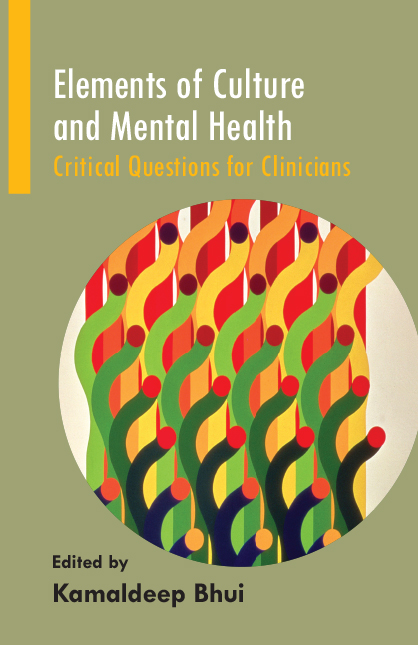Book contents
- Frontmatter
- Contents
- List of contributors
- Foreword: Desire and commitment: essential ingredients in learning about culture and mental illness
- 1 Is trauma-focused therapy helpful for survivors of war and conflict?
- 2 Will ethnopsychopharmacology lead to changes in clinical practice?
- 3 Does cognitive–behavioural therapy work for people with very different cultural orientations and backgrounds?
- 4 Can you do meaningful cognitive–behavioural therapy through an interpreter?
- 5 Are particular psychotherapeutic orientations indicated with specific ethnic minority groups?
- 6 Can psychotherapeutic interventions overcome epistemic difference?
- 7 On the role of culture and difference in evaluation, assessment and diagnosis
- 8 Necessary and sufficient competencies for intercultural work
- 9 On the validity and usefulness of existing Eurocentric diagnostic categories
- 10 Benefits and limitations of the cultural formulation in intercultural work
- 11 Barriers to the intercultural therapeutic relationship and how to overcome them
- 12 How does intercultural interpretation work in the mental health setting?
- 13 Do the power relations inherent in medical systems help or hinder in cross-cultural psychiatry?
- 14 Recovery and well-being: a paradigm for care
- 15 Social perspectives on diagnosis
- 16 Public mental health and inequalities
- 17 Can you do psychotherapy through an interpreter?
- 18 Can race and racism be acknowledged in the transference without it becoming a source of therapeutic impasse?
- 19 Cultural competence: models, measures and movements
- 20 Religion, spirituality and mental health
- Index
12 - How does intercultural interpretation work in the mental health setting?
- Frontmatter
- Contents
- List of contributors
- Foreword: Desire and commitment: essential ingredients in learning about culture and mental illness
- 1 Is trauma-focused therapy helpful for survivors of war and conflict?
- 2 Will ethnopsychopharmacology lead to changes in clinical practice?
- 3 Does cognitive–behavioural therapy work for people with very different cultural orientations and backgrounds?
- 4 Can you do meaningful cognitive–behavioural therapy through an interpreter?
- 5 Are particular psychotherapeutic orientations indicated with specific ethnic minority groups?
- 6 Can psychotherapeutic interventions overcome epistemic difference?
- 7 On the role of culture and difference in evaluation, assessment and diagnosis
- 8 Necessary and sufficient competencies for intercultural work
- 9 On the validity and usefulness of existing Eurocentric diagnostic categories
- 10 Benefits and limitations of the cultural formulation in intercultural work
- 11 Barriers to the intercultural therapeutic relationship and how to overcome them
- 12 How does intercultural interpretation work in the mental health setting?
- 13 Do the power relations inherent in medical systems help or hinder in cross-cultural psychiatry?
- 14 Recovery and well-being: a paradigm for care
- 15 Social perspectives on diagnosis
- 16 Public mental health and inequalities
- 17 Can you do psychotherapy through an interpreter?
- 18 Can race and racism be acknowledged in the transference without it becoming a source of therapeutic impasse?
- 19 Cultural competence: models, measures and movements
- 20 Religion, spirituality and mental health
- Index
Summary
Please ask yourself the following questions, then return to them after you have read this chapter, to see whether you wish to reconsider any of your responses:
• What exactly is intercultural interpretation in the mental health setting?
• What is expected of the interpreter?
• What is being interpreted or mediated in such an encounter?
• Each individual brings their own culture into a meeting, which is itself mediated by a number of factors at the micro- (individual) and macro- (cultural and contextual) level. Is it merely language that is being interpreted or is it something more complex, which includes culture, world views and explanatory health beliefs?
• Is it possible to work effectively with an interpreter to ensure that a patient's mental health needs are addressed appropriately and respectfully?
The challenges
There can be resistance to, or difficulties associated with, working through an interpreter, including feelings of threat and possible exposure experienced by all parties (Westermeyer, 1990). The overall and transferential dynamics within the meeting may be changed (Tribe & Thompson, 2009; Qureshi et al, 2011). Psychiatrists may feel a lack of experience in working through interpreters and may have concerns about how it will affect the meeting and about the accuracy of the interpreting. Patients may be very worried that their words and emotions may not be communicated adequately (Tribe & Raval, 2003). The interpreter may have concerns about working within a psychiatric setting (Razban, 2003). Lack of training and support for interpreters is a matter of concern. They may not be trained in mental health, nor be receiving support or clinical supervision, leaving them vulnerable to vicarious traumatisation (Doherty et al, 2010). We must not assume that a patient and interpreter who share a language will also share a culture. The latter is highly individualistic and there can be dangers in assuming any commonality of culture between interpreter and client. Language and culture interact in complex ways, and the interpreter may be negotiating between three world views: the patient's, the clinician's and their own (Drennan & Swartz, 1999).
- Type
- Chapter
- Information
- Elements of Culture and Mental HealthCritical Questions for Clinicians, pp. 57 - 60Publisher: Royal College of PsychiatristsFirst published in: 2017

